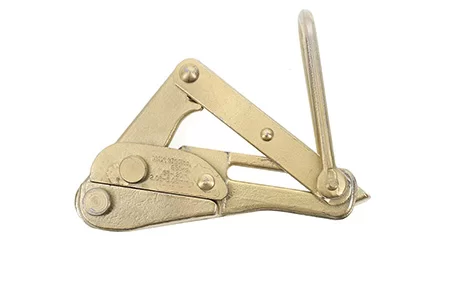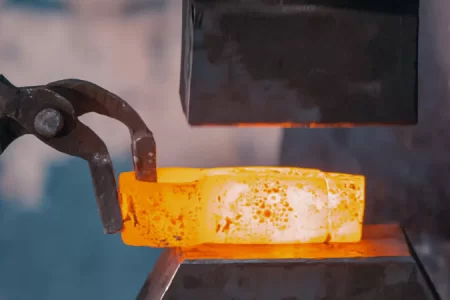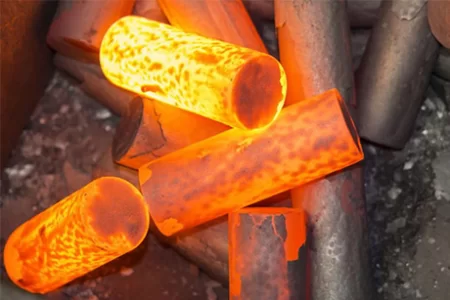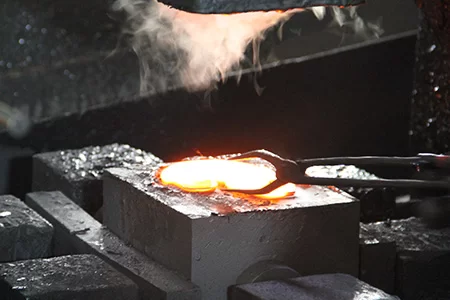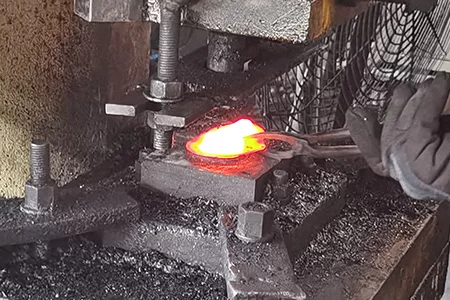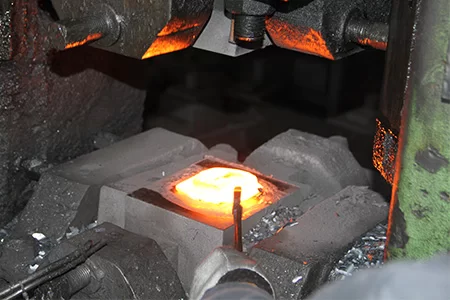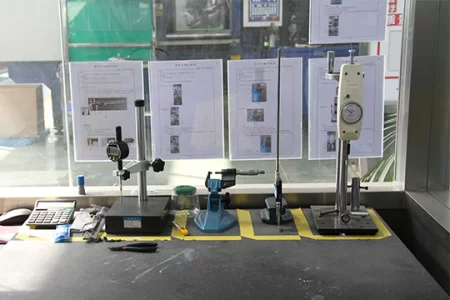By sharing knowledge, experience and views in the field of forging technology, we help you understand, learn and apply relevant technologies.

Hulk Metal Forging Technology
Share technical experience
-
Home>
-
Blog>
-
Technology>
Closed Die Steel Forgings Deliver Numerous Advantages

Closed die steel forging is a highly advanced manufacturing process that involves shaping metal using precision molds, producing components that are not only stronger but also more durable and precise. This process has seen widespread adoption across various industries as the need for higher quality, performance, and durability in components continues to increase. By fully encasing the material in a set of dies, closed die forging guarantees superior mechanical properties and dimensional accuracy, making it the preferred method for many applications.
This article delves into the many advantages of closed die steel forgings, examining why this process has become a critical technology in modern manufacturing and why it often outweighs alternative methods in terms of overall efficiency and performance.
What Is Closed Die Forging?
Closed die forging, or impression die forging, is a method that involves placing a heated billet of metal into a closed die, where it is then shaped using hammers or presses. Unlike open die forging, where the metal is simply compressed between two flat dies, closed die forging uses a set of precisely crafted molds that fully surround the metal, shaping it to the desired specifications. This process not only ensures tight tolerances but also refines the material's grain structure, improving its mechanical properties.
Components created using closed die forging are stronger, more durable, and more dimensionally accurate than those produced by many other methods. It is particularly effective for producing parts with complex geometries or those requiring high levels of strength and reliability.
Advantages of Closed Die Steel Forgings
Superior Strength and Durability
One of the foremost benefits of closed die steel forgings is the strength and durability they offer. When the metal is compressed during the forging process, its grain structure becomes aligned and refined, enhancing the material's overall strength. This process increases the resistance of the material to stress, wear, and impact. As a result, closed die forged components exhibit exceptional tensile strength, impact resistance, and fatigue resistance.
These enhanced mechanical properties make closed die forgings ideal for applications where parts are subject to extreme stress, high temperatures, or other harsh operating conditions. Whether it’s for critical automotive components, aerospace parts, or industrial machinery, the reliability of closed die forgings ensures that these parts will last longer and perform better under demanding circumstances.
Dimensional Accuracy and Consistency
Closed die forging also excels in terms of dimensional accuracy. The mold or die used in this process is designed to match the final shape of the component closely, minimizing the need for post-processing adjustments. This results in parts that are highly consistent, with minimal variation between pieces.
Such precision is vital for industries that require components to meet exacting tolerances. For instance, in sectors like aerospace, where parts must often be manufactured to within microns of the specified dimensions, the ability of closed die forging to meet tight tolerances is invaluable. This high degree of accuracy not only improves the performance of the component but also contributes to reducing material waste, leading to more efficient manufacturing processes.
Complex Geometries and Intricate Designs
Closed die forging is particularly advantageous when producing parts with complex shapes and intricate designs. The closed mold can be crafted with fine details, allowing manufacturers to create highly detailed and geometrically complex components that would be difficult or impossible to produce using other methods like casting or machining.
This ability to create intricate designs without sacrificing strength or durability makes closed die forging ideal for parts such as turbine blades, engine components, and custom tools, which often require both precision and structural integrity. It offers manufacturers the flexibility to meet the unique needs of their customers by producing components that are both functionally effective and aesthetically precise.
Material Efficiency
Material efficiency is another significant advantage of closed die forging. Since the die is designed to closely match the shape of the part, there is less material waste during the manufacturing process. This contrasts with other methods like machining, where a large amount of material is often removed to achieve the desired shape.
By minimizing waste, closed die forging reduces material costs, making it a more economical option for producing large quantities of high-quality components. Additionally, the enhanced material properties resulting from the forging process contribute to the longevity and reliability of the final product, offering additional value for the investment.
Improved Surface Finish
The forging process typically results in a smoother surface finish compared to other manufacturing methods. This is especially beneficial when the appearance of the part is important or when the component must have a surface that is resistant to corrosion, wear, and other environmental factors.
In many cases, closed die forged parts require little to no additional finishing processes, such as polishing or coating, which can save both time and money. For industries that require components with a high aesthetic quality or those that must withstand exposure to harsh conditions, closed die forging delivers a component that is both functional and visually appealing.
Closed Die Forging vs. Open Die Forging
While closed die forging offers numerous benefits, it’s essential to understand how it compares to other types of forging, particularly open die forging. In open die forging, the metal is shaped between two flat dies, which allows for greater flexibility in terms of size and shape. However, this process lacks the precision and efficiency offered by closed die forging, making it less suitable for producing parts with strict dimensional requirements or complex geometries.
Closed die forging provides superior strength, consistency, and precision, making it the preferred choice for applications where these factors are critical. Moreover, the closed die process typically results in reduced material waste and a more consistent final product, giving it an edge in both performance and cost-effectiveness.
Cost-Effectiveness of Closed Die Forging
Although the initial tooling cost for closed die forging may be higher than other processes, the long-term cost savings are significant. Because the process is more material-efficient, there is less waste, and the need for post-processing is minimized. This helps reduce overall production costs, making closed die forging a highly cost-effective option for mass-producing high-quality components.
In addition, the durability and reliability of closed die forged parts can lower maintenance costs over time, further enhancing their overall cost-effectiveness. For manufacturers producing large quantities of components, the savings in material and labor costs can quickly offset the initial tooling investment.
Closed die steel forging offers a multitude of advantages, including superior strength, dimensional accuracy, material efficiency, and the ability to produce complex geometries. This process is ideal for producing high-performance components that can withstand demanding applications in industries such as automotive, aerospace, and industrial machinery.
With its ability to create durable, precise, and cost-effective parts, closed die forging remains one of the most reliable and efficient manufacturing techniques available. As industries continue to push for higher performance standards, closed die forging will remain an essential technology for producing components that meet and exceed the stringent requirements of modern manufacturing.
By leveraging the advantages of closed die steel forgings, manufacturers can ensure the production of components that deliver superior performance and long-lasting durability, driving innovation and success across multiple sectors.
Article Navigation
Article Navigation
Industries
Foundries
-

December.11, 2024
Analysis of the characteristics and main uses of wire grip for conductor
READ MORE
-

July.01, 2024
Difference between hot forging and cold forging
READ MORE
-

June.27, 2024
What are the advantages and disadvantages of the hot forging process?
READ MORE
-

February.28, 2025
Open Die Forging: Exploring the forging process and the key factors in selecting a OEM
READ MORE
-

February.24, 2025
Key Considerations for Closed Die Forging
READ MORE
-

February.18, 2025
Factors to consider when purchasing custom forgings
READ MORE
-

February.14, 2025
HULK Metal's hot forging quality control
READ MORE



